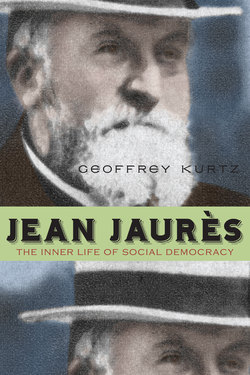Читать книгу Jean Jaurès - Geoffrey Kurtz - Страница 8
На сайте Литреса книга снята с продажи.
ОглавлениеACKNOWLEDGMENTS
My work on this book was supported by a Borough of Manhattan Community College (BMCC) Faculty Development Grant (2008) and by two Professional Staff Congress–City University of New York (PSC-CUNY) Research Awards (2008 and 2009). I presented parts of my research at a 2011 Faculty Salon held by BMCC’s Department of Social Sciences and Human Services and at the New York Political Science Association’s 2012 meeting, and I benefited from discussions at both events. I would like to acknowledge Logos: A Journal of Modern Society and Culture for publishing “Jean Jaurès: A Portrait” (2006) and New Political Science for publishing “A Socialist State of Grace: The Radical Reformism of Jean Jaurès” (2006) and “An Apprenticeship for Life in Common: Jean Jaurès on Social Democracy and the Modern Republic” (2013).
Reading and writing about Jaurès has been part of my life for more than a decade now, and during that time many people have contributed to this project. I am grateful to all the teachers, colleagues, neighbors, comrades, friends, and family members who have guided and supported me in this period. I would like to acknowledge by name the following people who played a part in the making of this book. My thanks go to each of them.
Early in my graduate studies, Stephen Eric Bronner extracted from me a promise to turn a short paper on Jaurès into “something publishable.” Although I now consider that obligation discharged, my intellectual debt to Steve remains, and I am happy to acknowledge it.
The staff at Pennsylvania State University Press, most notably, my editors—Sanford Thatcher at the beginning of the process and Kendra Boileau at the middle and end—shepherded this book to print with patience and forbearance. Copy editor Jeffrey H. Lockridge pushed me to sharpen my argument, improving the text tremendously. Michael Forman and Leslie Derfler reviewed an early version of the manuscript for the Press, and two anonymous reviewers commented on a later version.
Dorothea Coiffe and other librarians at BMCC’s A. Philip Randolph Memorial Library provided indispensable help. The staff and librarians at the New York Public Library’s Stephen A. Schwarzman Building—especially Jay Barksdale, liaison for the Allen Room and the Wertheim Study—made it possible for me to read and write in beautiful places.
Over the past few years, I have been shaped by an intellectual and political community in and beyond New York. Many of that community’s members have influenced or supported this book through conversations or correspondence (sometimes without knowing so, and sometimes despite—or through—their disagreements with the ideas I present here). Among them, I would particularly like to thank Kate Bedford, Melissa Brown, Mark Engler, K. E. Saavik Ford, Roger Foster, Brian Graf, Andrew Greenberg, Kristy King, Jacob Kramer, Daraka Larimore-Hall, Penny Lewis, James Mastrangelo, Charles Post, Joseph M. Schwartz, Jessica Shearer, Nichole Shippen, and Michael J. Thompson. Others—Matthew Ally, Michael Rabinowitz, and Brian Stipelman—also offered helpful comments on sections of the manuscript. I thank Matthew in particular for his questions about Jaurès’s first doctoral thesis, which steered me away from a number of serious errors.
I have benefited continually from the gracious generosity of my family: Wayne and Kathleen Kurtz, Jeremy and Stefanie Kurtz-Harris, Deborah and Mark Andstrom, and (smallest but not least) Miriam, Lewis, and Ginger. If ever I doubted that we are born and remain dependent on those who love us, writing this book has taught me all over again that this is so.
My wife, Alyson Campbell, has done more than any other person to make this book possible, from commenting on drafts of the manuscript to answering questions about French, to patiently performing the practical work of partnership, to showing me what it is to be a citizen, to having more confidence than I often had that the project would eventually be finished. I dedicate this book to her.
